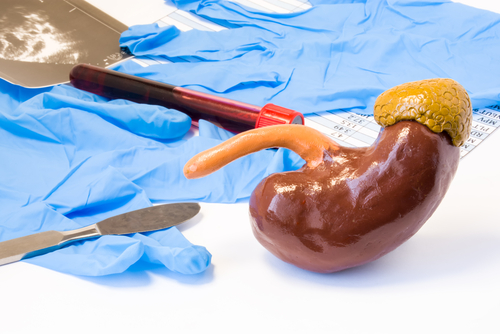Successful Kidney Transplant Can Reverse Platelet Dysfunction in End-stage Renal Disease, Study Shows

Platelet dysfunction due to renal diseases such as Alport syndrome can be effectively reversed with a successful kidney transplant, according to a study published in the Clinical Kidney Journal.
It is common for patients with end-stage renal disease (ESRD) to experience bleeding, more frequent bleeding into the skin, and bleeding from mucosal surfaces. Several disease-related and external factors are known to contribute to this.
Drugs such as anticoagulant agents used to prevent blood clots from forming during dialysis, gastrointestinal changes, and platelet dysfunction due to increased levels of urea in the blood can predispose patients to bleeding.
Several molecular processes have been identified that promote uremic platelet dysfunction seen in ESRD patients. So far, however, no treatment has been able to effectively improve it, as they can target only one of those processes.
Kidney transplant could be a potential therapeutic option. Since this treatment can reverse the metabolic disarray of ESRD, it could potentially improve — completely or partially — uremic platelet dysfunction.
In the study titled “Successful kidney transplantation normalizes platelet function,” researchers investigated platelet function and the effect of kidney transplants in patients with end-stage renal disease.
The team was from Beaumont Hospital in Dublin, Ireland, and the Royal College of Surgeons in Dublin.
Ten patients with ESRD and nine healthy volunteers, called controls, were included in the study. The patients had different kidney diseases, such as systemic lupus erythematosus (SLE), Alport syndrome, and focal segmental glomerular sclerosis (FSGS).
All 10 ESRD patients underwent successful living donor kidney transplants, achieving reduced levels of serum creatinine (used as an indicator of kidney health).
A pre-transplant evaluation of the ability of platelets to tether, roll and adhere revealed the patients had reduced platelet function compared to healthy volunteers. After their transplants, seven patients showed significant improvements in platelet function.
Platelet interactions did not improve in three transplant recipients, all of whom were found to have delayed graft function and needed dialysis treatment in the first week after transplant.
Two years after their transplants, one of these patients presented a good renal function and a normalized platelet function that was no longer different from the other transplant patients.
Another patient showed impaired transplant function, with increased levels of creatinine, and still had abnormal platelet responses. The third patient was not re-evaluated.
“Excellent, immediate transplant function is associated with normalized platelet function within weeks of the surgery,” the researchers wrote.
Delayed graft function “is associated with persistence of the abnormalities,” which can improve later with renal recovery, they added.
The team is planning additional assessments of platelet function improvement linked to renal recovery in transplant patients.







Brad Szczecinski
Hope to know more about this interesting topic! Thanks for sharing!